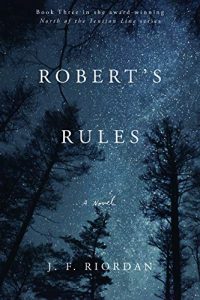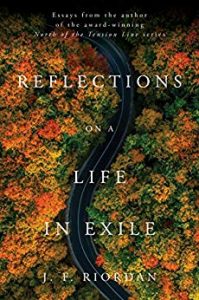The Paradox of Inspiration
My father was the proverbial rocket scientist. He had more than 120 patents on everything from missile guidance systems, to seals for airplane windows, to antilock braking systems. I can remember, as a little girl, waking up and being told by my mother to be quiet because my father was sleeping. He had awakened with an idea, and worked all night on a new invention.
 As a writer, I am often asked about my inspiration. It’s a difficult question to answer, because it is so complex and mysterious, but I have come to accept certain truths about the process, even though they are somewhat contradictory. I can’t call them rules, because that is too restrictive, and inspiration needs freedom. But they are principles that are helpful to acknowledge in all their unpredictable glory.
As a writer, I am often asked about my inspiration. It’s a difficult question to answer, because it is so complex and mysterious, but I have come to accept certain truths about the process, even though they are somewhat contradictory. I can’t call them rules, because that is too restrictive, and inspiration needs freedom. But they are principles that are helpful to acknowledge in all their unpredictable glory.
The first fundamental about inspiration is that you have to earn it. Inspiration rarely comes when you aren’t working. It comes while you have been working, and working hard. I can’t expect to spend days procrastinating and then suddenly have a vision of an intact scene for a novel come into my head.
Usually I have to be following a settled discipline of early risings, long hours of concerted—perhaps merely workmanlike—writing, for days, or possibly weeks. I sometimes feel that inspiration is a bit like the Peanuts character Linus and the sincere pumpkin patch. Like the Great Pumpkin, the Muse only visits those who have earned the privilege.
Once you have established a rhythm in your work, you reach a state of flow that has both facility and creativity. Pieces seem to fit together with ease, and every knot is easily untied. This is the core of the writing process, and a principle that every creative discipline seems to share: Do the work, and the work will do itself. You have to build the scaffolding of discipline as the underlying structure of your work.
The second fundamental is that you have to keep an open heart. I had been in a particularly productive writing cycle, and everything had been flowing. One night I was driving home from some event, the kind of cocktail party where everyone wears name tags: boring, cheerless, and obligatory. There was snow falling, and I was almost home when suddenly a voice came into my head, speaking in the first person. I raced home to write it down, standing at the kitchen counter without even taking my coat off.
The next morning, I looked at what I had written. It was compelling, complete, and real, but uncomfortably intense. It was also odd; different from anything else I had written, and didn’t really fit with the rest of the book. Reluctantly, instead of using it, I set it aside, hoping it might work for some other project.
Then, my muse went dark. Everything stopped. I couldn’t write. I couldn’t advance the plot of my story. I couldn’t find the thread. I sat at my desk in the dark every morning, and nothing happened. Finally, acknowledging defeat, I gave up, set everything aside to brew, and went about my life. Weeks later, on a snowy January morning, I stood at my door looking out over the woods, and suddenly saw where that abandoned voice fit. It did belong in the novel, and I knew exactly where. I sat down then and there and from that moment on, the story began to move again.
By shutting down my inspiration, I had shut down the whole process. I hadn’t listened. Meanwhile, my subconscious had been wrestling with the problem and searching for a solution. Like stargazing, when you have to look away from something to fully see it, inspiration can require you to look away from your work. My father, who had daily been struggling to find the answer to some problem, would wake up one night knowing the solution.
And that’s the contradiction to the first principle. Inspiration comes when you are working, but sometimes you have to stop working in order to find it. The key is that when you stop, it has to be the right kind of procrastination.
Procrastination has two forms: there is the procrastination that comes from laziness or self-indulgence: when you want to sleep a little longer, buy things online, or waste an hour on Twitter. But there’s also a form of procrastination that is a kind of gestation period, when, like Jacob wrestling the angel, your subconscious is struggling to solve a problem. If you are honest with yourself, you know which is which. You look away to see the star. You need to refuse the indulgence, but honor the gestation.
I heard an interview a while back with a songwriter. She spoke of a river of inspiration flowing over her head that she could reach into and pull down the music. She believed that certain ideas are there just for you, but if you don’t accept them, they are given to someone else. That idea of the river is appealing. But it is interesting that she, too, was speaking of being receptive to the inspiration. If you reject it—if you don’t keep an open heart—you lose it, and someone else is chosen.
It isn’t a predictable or even a logical process. Being chosen isn’t a given. You have to make yourself ready to be chosen by doing the work, by showing up at your desk every day, by building the discipline necessary to turn the inspiration into something worth reading. Even in its contradictions, the process seems to be universal. Make yourself worthy, and when you stop to listen, the inspiration will come.
—
 Wisconsin author J.F. Riordan has been called “a latter-day Jane Austen”. Her mesmerizing literary fiction makes the Great Lakes region one of the characters in this continuing series. The North of the Tension Line books (North of the Tension Line; The Audacity of Goats; and Robert’s Rules) represent a sensibility that is distinctively Midwestern, even though the small town politics and gossip will be universally familiar. Riordan celebrates the well-lived life of the ordinary man and woman with meticulously drawn characters and intriguing plots that magnify the beauty and mystery lingering near the surface of everyday life.
Wisconsin author J.F. Riordan has been called “a latter-day Jane Austen”. Her mesmerizing literary fiction makes the Great Lakes region one of the characters in this continuing series. The North of the Tension Line books (North of the Tension Line; The Audacity of Goats; and Robert’s Rules) represent a sensibility that is distinctively Midwestern, even though the small town politics and gossip will be universally familiar. Riordan celebrates the well-lived life of the ordinary man and woman with meticulously drawn characters and intriguing plots that magnify the beauty and mystery lingering near the surface of everyday life.
A book of essays, Reflections on a Life in Exile, will be out in early 2019, and the fourth novel in the series, A Small, Earnest Question, is due out in 2020.
“Riordan has a knack for making you want to sit down with her characters and root for them or despise them or just wonder what will become of them. North of the Tension Line is the equivalent of latter-day Jane Austen, but with contemporary humor. It’s engrossing and poignant.”—Mike Nichols, author of The Waking, and Just a Few Sleeps Away
Find out more about her on her website http://jfriordan.com/
Follow her on Twitter @AudacityofGoats
About REFLECTIONS ON A LIFE IN EXILE
 A collection of essays by novelist J.F. Riordan, Reflections on a Life in Exile is easy to pick up, and hard to put down. By turns deeply spiritual and gently comic, these brief meditations range from the inconveniences of modern life to the shifting nature of grief. Whether it’s an unexpected revelation from a trip to the hardware store, a casual encounter with a tow-truck driver, the changing seasons, or a conversation with a store clerk grieving for a dog, J. F. Riordan captures and magnifies the passing beauty of the ordinary and the extraordinary that lingers near the surface of daily life.
A collection of essays by novelist J.F. Riordan, Reflections on a Life in Exile is easy to pick up, and hard to put down. By turns deeply spiritual and gently comic, these brief meditations range from the inconveniences of modern life to the shifting nature of grief. Whether it’s an unexpected revelation from a trip to the hardware store, a casual encounter with a tow-truck driver, the changing seasons, or a conversation with a store clerk grieving for a dog, J. F. Riordan captures and magnifies the passing beauty of the ordinary and the extraordinary that lingers near the surface of daily life.
Category: Contemporary Women Writers, How To and Tips































Interestingly enough, I often start with a prompt and an idea and end up writing something entirely different from the story I started. Just the work of getting started kick-starts the brain.